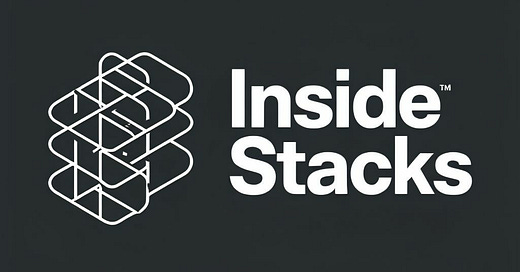AI, But Make It Personal: Everyday Ways It Can Help Your Health
No AGI, no problem—AI is already making life easier.
Hey there, everyone—Loredan here, coming to you with a fresh brew of ideas (yes, coffee puns included). We spend so much time talking about whether AI will take over the world, we sometimes forget it’s already helping us in big ways—no need to be a super-intelligent robot from the future. Let’s explore some everyday (but still pretty amazing) ways we can use this tech to improve our health and wellness, all while sipping our favorite cup of java. Keep in mind these are potential ideas on the particular topic I’ve chosen to talk about. Always seek medical advice and ensure you’re going to a licensed medical professional.
A Helpful (Non-AGI) Companion
We might not be living with full-blown Artificial General Intelligence or super-sentient robots yet, but that doesn’t mean today’s AI isn’t doing some useful stuff. Let’s face it: sometimes it’s easier to type out a question than to chase down a specialist—especially when you’re juggling life, errands, and that all-important morning coffee run.
Below are a few ways everyday AI can lend a hand. Think of these as jumping-off points for conversations with real healthcare professionals, rather than a magic fix. (But hey, it’s still pretty cool.)
1. Enhanced Symptom Description
Sample Prompt
“I’ve been feeling a mild headache every afternoon for the last week, along with occasional nausea. Can you help me describe these symptoms more precisely so I can share them with my doctor?”
Why It’s Useful: Sometimes your doctor needs specifics—like how many times the headache shows up, the type of pain, or other subtle factors. AI can help you organize your thoughts and ensure you don’t forget key details when it’s time to chat with a medical pro. More precise info = quicker guidance, and that means less stress (and maybe fewer cups of stress-fueled coffee).
2. Preliminary Blood Work Interpretation
Sample Prompt
“Here are my recent blood test results: [Paste Values]. I’m a 35-year-old female. Could you provide a general overview of what these numbers might mean, and what I might ask my doctor?”
Why It’s Useful: We’re all guilty of peeking at test results and immediately turning to the internet. AI can offer a balanced breakdown, helping you form better questions for your next appointment. Kind of like reading a coffee label before you decide if you want a dark roast or something a bit lighter.
3. Diagnostic Idea Exploration (Limited Access Areas)
Sample Prompt
“I live in a rural area with limited specialist care. I’m experiencing joint pain and swelling in my fingers. What possible conditions should I consider researching, and what kind of specialist should I see?”
Why It’s Useful: Not all of us live in a place with a hospital on every corner. AI can give a bit of direction, narrowing down possibilities and suggesting the type of doctor you should seek out—whether that’s a rheumatologist, orthopedist, or just a friendly barista (kidding, definitely not the barista… unless they double as a medical professional).
4. Mental Health & Wellness (Non-Diagnostic)
Sample Prompt
“I’m feeling stressed at work and having trouble sleeping. Can you suggest simple mindfulness exercises or self-care routines I can try at home?”
Why It’s Useful: From quick breathing exercises to short meditations, AI can recommend strategies that might help you unwind—no fancy equipment needed. It’s like asking a friend for advice on how to chill out, only this friend might also remind you to consider cutting back on that 5 p.m. espresso.
5. AI for Grief Counseling (Niche)
Sample Prompt
“I’ve recently lost a close friend. Can you offer gentle advice or activities that might help me process my grief?”
Why It’s Useful: Grief can be overwhelming, and not everyone is ready to see a therapist right away. AI can provide comforting words, journaling prompts, or even local resources to explore. Think of it as a supportive nudge, but always remember it’s just a stepping stone to professional help if you need it.
Beyond the Basics
These examples are just the tip of the iceberg. Honestly, if AI can help me pick out the perfect coffee blend based on my flavor preferences (yes, that exists!), imagine what else is possible. Whether it’s interpreting lab results, helping describe symptoms, or just offering a bit of emotional support, there’s a lot of potential for good—even without super-advanced AI that’s basically a sci-fi movie character.
So, pour that next cup of coffee, take a deep breath, and don’t be afraid to tap into these tools for a little extra help when life (and health) gets complicated.
Cheers (or should I say “sip, sip, hooray?”) to better living with a bit of AI on the side.
—Loredan




